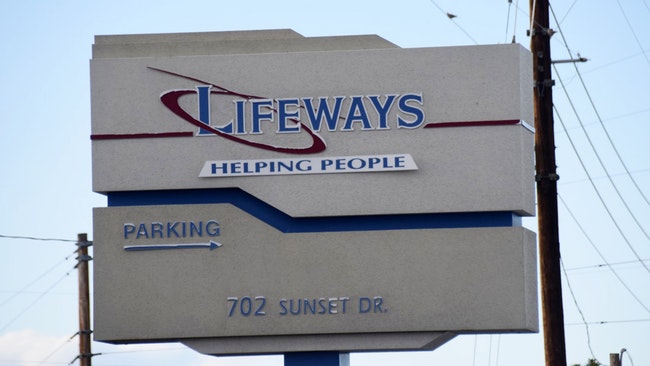
Lifeways prevention specialists Judi Trask and Paula Olvera said that those struggling with drug use need to know that help is available to them. (The Enterprise/Yadira Lopez)
ONTARIO – Local prevention experts say that there has been a marked increase in substance use in Malheur County during the pandemic.
According to Paula Olvera and Judi Trask, prevention specialists at Lifeways, the pandemic has increased risk factors for drug use, like isolation and a lack of entertainment, while decreasing access to protective factors, like social connections and recreation.
“People, both adults and youth, have nowhere to go and nothing to do,” Olvera wrote in an email.
“I think our kids are staying home, they’re bored, they’re doing nothing, so they’re resorting to self medication and passing time using marijuana,” said Susan Gregory, director of the Malheur County Juvenile Department. “And with the dispensaries it’s so much more accessible and it’s everywhere.”
There are eight dispensaries in Malheur County, all in Ontario.
Olvera said that marijuana, “mainly in dab form,” and alcohol were “overwhelmingly the most commonly abused drugs in Malheur County, followed by meth, then heroin and prescription pills.”
Although recreational use of marijuana is legal for adults over 21, for youth, being found with any amount of marijuana in their possession can result in a citation, even if it’s simply a pipe with residue.
“When a kid gets cited for having marijuana, they’ll come to juvenile arraignment,” said Gregory. “The probation officer meets with them, and they’re required to do a substance use evaluation and follow the recommendations.”
The recommendations, she explained, can range from classes to inpatient treatment, depending on the child’s level of use.
“Our goal is always to get the kids into treatment and get them in the services they need,” she said.
Citations of youth in possession of marijuana went up by 44% during 2020 as compared to 2019. The figure is all the more surprising given that youth were mostly not present in the school buildings where they might normally run afoul of law enforcement.
Olvera is concerned that since children have largely not been in school, there have been fewer opportunities to intervene in substance abuse.
“When leaders who work with our youth notice troubling signs, they can make a referral. Earlier referrals equal earlier intervention, which lessens the chance of repeated behaviors…resulting in lower likelihood of the youth developing an addiction disorder,” she said.
Olvera explained that youth substance use has a higher chance of becoming an addiction.
“If substance use is introduced before age 25 the actual structure of the brain can be changed,” she said. “In the case of marijuana for example, 1 in 6 people who try marijuana before age 18 will develop an addiction. The addiction rate for adults is one in 10.”
For those already struggling with addiction, said Olvera, the most important thing is to seek help and not give up.
“It is important to find the right fit for the person. If one type of help doesn’t work, another will. Most often a combination of therapies and treatments is the best option. Keep looking until you find the best fit for yourself or your loved one,” she said.
This month, a new norm went into effect under voter-approved Ballot Measure 110, passed last November. The measure decriminalized possession of most drugs, including methamphetamines and heroin, and established new sources of funding for recovery and treatment centers. Gregory said her department was still working out how the measure will apply to youth.
In the meantime, she said, there is plenty that families can do to support their children to live a healthy lifestyle.
“Talking to our kids is really important,” said Gregory. “Our kids are very social beings and (the pandemic) is really having an effect on their mental health. Definitely be involved with what your kids are doing and just try to help them through this…The kids need to understand that you care and that you are interested in what they’re doing, so, talking about your family’s perspective of drug use, and knowing who your kids are with and what they’re doing – just the normal stuff – is still important.”
News tip? Contact reporter Liliana Frankel at [email protected] or 267-981-5577.
YOU CAN SUPPORT THIS KIND OF WORK
The Enterprise relies on community support to fund vital local journalism. You can help us do more.
SUBSCRIBE: A monthly digital subscription is $5 a month.
GIFT: Give someone you know a subscription.
ONE-TIME PAYMENT: Contribute, knowing your support goes towards more local journalism you can trust.




